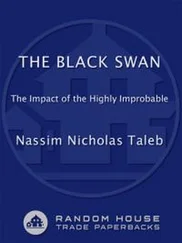Celestia Bloss - Heroines of the Crusades
Здесь есть возможность читать онлайн «Celestia Bloss - Heroines of the Crusades» — ознакомительный отрывок электронной книги совершенно бесплатно, а после прочтения отрывка купить полную версию. В некоторых случаях можно слушать аудио, скачать через торрент в формате fb2 и присутствует краткое содержание. Жанр: foreign_antique, foreign_prose, на английском языке. Описание произведения, (предисловие) а так же отзывы посетителей доступны на портале библиотеки ЛибКат.
- Название:Heroines of the Crusades
- Автор:
- Жанр:
- Год:неизвестен
- ISBN:нет данных
- Рейтинг книги:3 / 5. Голосов: 1
-
Избранное:Добавить в избранное
- Отзывы:
-
Ваша оценка:
- 60
- 1
- 2
- 3
- 4
- 5
Heroines of the Crusades: краткое содержание, описание и аннотация
Предлагаем к чтению аннотацию, описание, краткое содержание или предисловие (зависит от того, что написал сам автор книги «Heroines of the Crusades»). Если вы не нашли необходимую информацию о книге — напишите в комментариях, мы постараемся отыскать её.
Heroines of the Crusades — читать онлайн ознакомительный отрывок
Ниже представлен текст книги, разбитый по страницам. Система сохранения места последней прочитанной страницы, позволяет с удобством читать онлайн бесплатно книгу «Heroines of the Crusades», без необходимости каждый раз заново искать на чём Вы остановились. Поставьте закладку, и сможете в любой момент перейти на страницу, на которой закончили чтение.
Интервал:
Закладка:
Adela interrupted him. “I know all to the time of their departure from that city. How have they sped in their encounters with the Infidels?”
“The first place of importance which they attacked,” replied Henry, “was Nice, the chief city of Rhoum, occupied by the Seljoukian Turks, who exacted tribute from all the inhabitants of Asia Minor. The Sultan Soliman hearing of the coming of the crusaders, left his capital defended by a strong garrison, and hastened to the mountains levying troops in all directions. The first body of croises that reached the city, was led by Godfrey of Boulogne, and Hugh of Vermandois, who took up their position on the eastern side. Raimond of Toulouse, and the Bishop of Puy, encamped on the south, while Robert of Flanders, and Bohemond of Tarentum pitched their camp upon the north. And of this Bohemond, the noble chief of Otranto, I must tell thee. Forty Norman gentlemen who had distinguished themselves in the wars of our father, returning from a pilgrimage to the Holy Land, disembarked in Italy. Learning that the Prince of Salerno was besieged by the Saracens, they threw themselves into that town, and being supplied with arms and horses, soon compelled the Infidels to retire. After their return home, deputies came to Normandy from the prince imploring their further assistance. In consequence of his promises and persuasions, several bodies of adventurers, at the head of whom was Robert Guiscard and his eleven brothers, emigrated together, cleared the south of Italy from the locust-like invaders, and established themselves lords of Apulia and Calabria. Robert Guiscard spent most of his life in wars with the Greek Emperor, and was finally poisoned by Alexius. Bohemond, the son of this Guiscard, espoused the quarrel, and was preparing to avenge his father’s death, but when he heard the crusade proclaimed, his chivalric spirit at once caught the flame. Dashing his armor to pieces with his battle-axe, he caused them to be formed into small crosses, which he distributed among his followers, and abandoning his possessions in Italy, joined the pilgrims with his cousin, Tancred, a youth distinguished for beauty, valor, generosity, enthusiasm – ”
“I care not,” said Adela, “though he were as beautiful as Absalom and wise as Solomon. There are two less distinguished chiefs, who possess far more interest for me than all the warriors in Italy.”
“Of those thou shalt hear anon,” said Henry. “When this Bohemond was in Constantinople, the emperor sought to win his friendship.”
“Return not to Bohemond again,” interrupted the countess, “’tis of Stephen and Robert I would hear.”
“Now, sister,” said Henry, playfully, “thou knowest not what thou refusest. Will it not please thy woman’s curiosity, to hear of the magnificent rooms of the Blaquernel, filled with stores of money and jewels, costly garments, and rich silks of unheard-of value, that Alexius gave Bohemond to secure his allegiance.”
“Nothing will please me,” said Adela, “but to know what is the fortune of my husband.”
“And that will please thee well,” said Henry, breaking into a playful laugh. “Stephen, triple Count of Blois, Chartres, and Champagne, the husband of my gifted sister,” bowing to the countess, “son-in-law of William the Conqueror, father of earls, and I doubt not of kings, the most beautiful, accomplished, eloquent, and prudent man of the times, was chosen president of the council of chiefs.”
“Heaven bless thee for thy news,” said Adela, in a transport of joy; “and Robert?”
“Justifies his youthful soubriquet of ‘unready.’ He came last to the siege of Nice. His troops, however, were fresh and vigorous, and when he approached the city by the west, which position had been left for his encampment, he scanned, with a fearless eye, the double walls, defended by three hundred and fifty towers, filled with bowmen, and spearsmen of the most determined valor. He drew up the warriors of Normandy, with those of Blois and Chartres, and a band from Boulogne, where a great part of the people led by Walter the Penniless and Peter the Hermit had been defeated and slain. The Infidels in mockery had formed here a great pile of their bones, and covered them with earth; so that when Robert arrived with his forces, he pitched his tent just beside the green sepulchre of those who had found martyrdom on that very spot. Peter the Hermit, with the remnant of his forces, soon after joined the besiegers, and the army, as they were then numbered, consisted of 600,000 infantry and 100,000 mailed cavalry. Each man confessed his sins, and the sacrifice of mass being offered, they commenced the erection of engines, and other preparations for the siege. Soliman himself was encamped upon the mountains, scarcely ten miles off, watching in what manner he might best free his city from the enemies that clustered around it. Two of his messengers were intercepted by Godfrey. They confessed that they were sent to concert with the besieged a double attack upon the christian camp. The crusaders immediately prepared for the conflict. By break of day the Moslems began to descend from the hills, and issue from the town. The Christians received them everywhere with determined valor, repulsed them on all points, became in turn the assailants, and all the plain around Nice grew one general scene of conflict. This attack was twice repeated with the same result, and the sultan was at last compelled to retire, astonished at the lion-like courage of the Franks, who with a thousand lances, could charge, and easily put to flight twenty thousand Turks. But amidst these splendid achievements, which the Saxon Gilbert described, with great vividness, he said it was mournful to see the pilgrims at nightfall collecting the dead bodies of their companions and bearing them in sad procession to the cypress groves adjacent, where by the melancholy glare of the torches they buried them without coffin or shroud.
“To intimidate the besieged, the croises cut off the heads of the fallen Moslems, and shot them from their engines into the city.
“The Turks invented a horrid method of retaliation. Long iron hooks were let down from the walls, by which the bodies of the slaughtered Christians were seized and drawn up through the air, and after being stripped and maimed were again cast forth upon the ground.
“Young Gilbert being wounded and lying insensible, was grappled and drawn into the city in this manner, but finding that life was not extinct, they delivered him over to the care of Soliman’s physicians, who tended him as a prisoner of note. The siege had been protracted to some length and the Christians had succeeded in undermining a huge tower at the north-eastern angle of the wall. The Sultana, alarmed at the loss of this important defence, determined upon flight. Several boats were prepared, and the Queen, with her train, among whom was young Gilbert, attended by a dark-eyed daughter of an Emir, beautiful as an houri, attempted to make her escape at night by way of the lake. As the little fleet moved stealthily in the shadow of the overhanging cliff, Becket seized a bow, and dexterously discharged an arrow towards the nearest outpost of the christian camp.
“The twang of the bow-string attracted the attention of the Moslems, but Zaida perceiving the danger of her favorite smote the strings of her harp, and thus, ingeniously reproducing the sound, made the whole appear the result of accident.
“Becket afterwards learned, that the dart fell at the very feet of the sentinel dozing by the watch-fire, who started up, aroused his comrades, and soon the knights of Duke Robert swarmed along the shore.
“The Paynims plied their oars in vain, the Normans intercepted their flight. The Sultana was taken prisoner, and only the boat of the Emir with the disappointed Gilbert escaped capture.
Читать дальшеИнтервал:
Закладка:
Похожие книги на «Heroines of the Crusades»
Представляем Вашему вниманию похожие книги на «Heroines of the Crusades» списком для выбора. Мы отобрали схожую по названию и смыслу литературу в надежде предоставить читателям больше вариантов отыскать новые, интересные, ещё непрочитанные произведения.
Обсуждение, отзывы о книге «Heroines of the Crusades» и просто собственные мнения читателей. Оставьте ваши комментарии, напишите, что Вы думаете о произведении, его смысле или главных героях. Укажите что конкретно понравилось, а что нет, и почему Вы так считаете.












